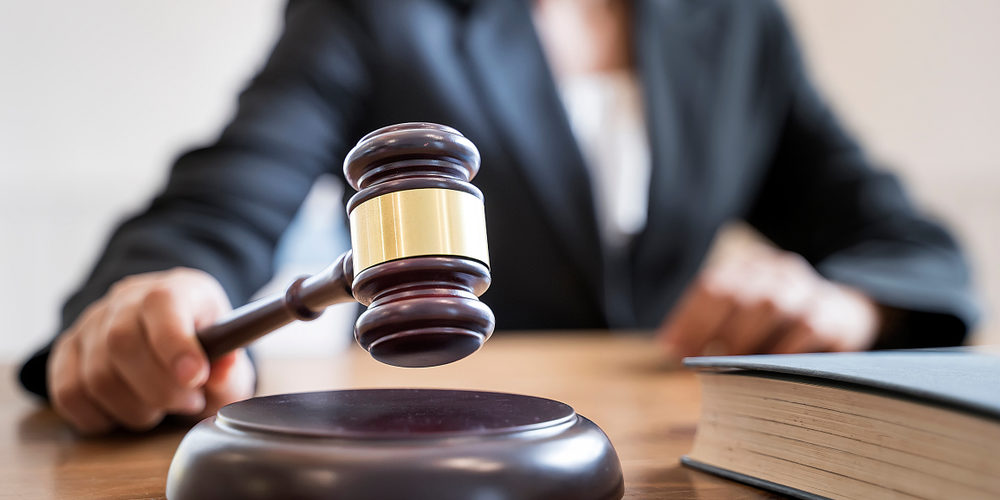There are many misconceptions surrounding debt recovery, including the idea that Court proceedings are almost a matter of course for any claim.
In truth, this avenue is not required for a large proportion of debt settlements. There are in fact a lot of steps we walk our clients through before Court action has to become a reality and we appreciate how daunting the experience can be for both the claimant and the debtor. We therefore do all we can to avoid this wherever possible.
However, in a certain percentage of cases, Court action is simply unavoidable – either because the debtor ignores the claim or a settlement cannot be agreed.
In this article, we’ll answer your commonly asked Court proceeding debt collection questions.
If a debt recovery case goes to Court, what happens?
As soon as the Court receives details of the claim, it will issue a Claim Form and Response Pack to the debtor. The debtor has 14 days to respond to the claim with the three likely outcomes being:
- They take no action
- They choose to defend the claim
- They admit liability for either the whole of the debt or part of the debt
If no response is received, then a request can be made to the Court to enter Judgment. If this request is successful, the Court will then formally rule that the debtor owes the money. Judgments tell a debtor how much they owe, how they can pay, the deadline for payment and who the money is owed to. If after Judgment has been obtained no payment or contact has been received from the debtor, then it is time to consider the enforcement methods available to reclaim the debt.
If a claim is defended, then a debt recovery legal practice such as ours will represent the client throughout the process that follows in order to maintain the pursuit of reclaiming the money owed. When our team represents a client, we pass the case to our in-house defence lawyer to review and take clients instruction in relation to the Defence raised. We then estimate how much it will cost to deal with the Defence and how likely it is that the debt will be paid so that the client can decide if the debt is worth pursuing.
Where a claim is fully or partially admitted, and a repayment offer made, our team will organise and monitor the payments and payment arrangement on a client’s behalf.
Which debt recovery enforcement options are available?
Numerous enforcement methods can be used to reclaim a debt. Your legal practice will discuss these with you in great detail in order to arrive at the right solution for you while considering which method has the highest likelihood of recovering the debt you’re owed. Enforcement methods include:
- Instructing a High Court Enforcement Agent (HCEA) or County Court Bailiff
- Completing an Attachment of Earnings Application
- Issuing a Charging Order Application
- Issuing a Third Party Debt Order Application
- Requesting the debtor to attend Court for questioning
HCEA and County Court Bailiffs
HCEAs are only instructed under a Writ of Control for debts in excess of £600. This means that an Agent can attend a residential or commercial property in order to recover a debt. In this situation, where payment is still not made, payment arrangements can be agreed or goods can be taken from the property and sold at auction to make up the value of the debt. A County Court Bailiff works in very much the same way, but will look after debts up to the value of £600.
Attachment of Earnings
This approach can be effective where a debtor is in employment and earning over the protected earnings rate. Through an Attachment of Earnings, the Court orders the employer to deduct sums owed from the debtor’s wages until the debt and any associated costs and interest are paid in full.
Charging Order
Where the debtor owns property, an application can be made to the Court for a charge – which works in the same way as a mortgage. Any Charging Orders are registered at HM Land Registry so that if a sale or remortgage takes place, the creditor can still recover the debt alongside any interest.
Third party Debt Orders
A Third Party Debt Order is where an independent third party such as a bank or building society is requested by a Court to prevent a debtor from accessing funds in an account. The money in the account at the time of the application is frozen and once a Court hearing has been attended, a decision is made whether or not to make a final third party debt order. If this is agreed, then the bank or building society will pay the funds to the creditor.
Debtor attends Court for Questioning
In this situation, an Order is personally served upon the debtor to attend Court and be questioned under oath about their financial circumstances. Debtors must attend the Court with relevant documentation such as proof of income, outgoings and assets. This method allows the Court to find out as much information as possible about the debtor’s financial situation before a decision is made as to the best enforcement method in order to reclaim the debt.
Does your business have outstanding debts?
If the answer to this question is yes, then our team is on hand to walk you through the debt recovery process. We possess the necessary in-house legal and debt recovery expertise to offer a holistic end-to-end solution – including insolvency actions such as statutory demands, bankruptcy petitions and winding up petitions, as well as possession orders and return of goods claims.
We’re always sensitive to the reputation of your brand and our caring culture, married with a tailored approach for each and every client, has seen us instructed to recover debts for commercial, healthcare, legal and utilities organisations.
Instruct us today by speaking to our client services team.






